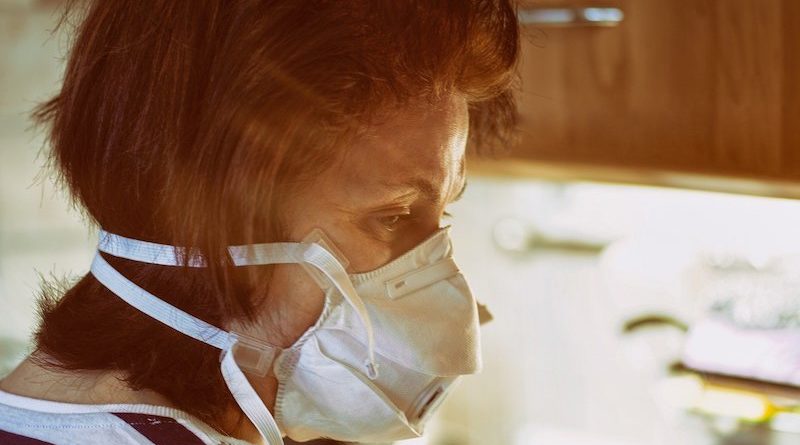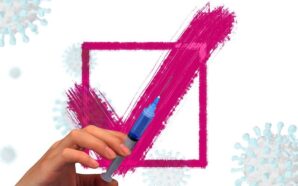We have all been hearing about the rise of a super bug – facts, myths, even conspiracy theories and what have you. Many scientists, medical practitioners and even technologists warned us about being ill prepared in dealing with an imminent threat of a new pandemic. And now it is here.
When we first heard the news about a novel virus in Wuhan, China, it was with mixed feelings of disbelief and denial. Then came videos of deserted streets or government-imposed lockdown, denial was slowly replaced by an uneasiness trickling in.
Fear finally had the world in its grip with the devastation in Italy. The specter of the virus was and is still looming large all across the world and its appetite for victims remain unabated.
A global health crisis, the wrath of this pandemic overwhelms every fiber of our society. It has socio-economic repercussions that are as far reaching as the health crisis itself. It has taken a toll on our collective and individual mental health and well-being, with the influx of information riddled with dis-info and misinformation as well as the ceaseless rising numbers of patients.
Coping with stress, fear and other strong, negative emotions is important to make both communities and individuals stronger. And it is certainly not untrue to claim that one of the most debilitating impact of the Coronavirus is on our individual and communal mental health. Living in the reality of globalization, the impact and repercussions of the pandemic is turning out to be far greater than that of the 1930’s Great Depression. To find solutions, one must take a closer look at the crises with all its intersections and most importantly under a gender lens.
Tens of millions of patients are regularly diagnosed with mental illnesses all around the world, not to forget people suffering due to a variety of ordeals and trauma that eventually lead to damaging effect on their mental well-being. And with the rise of the COVID19, this unprecedented moment in history is not just grievously affecting people with pre-conditions, many are experiencing feelings of anxiety and aggression all across the world.
According to a report: “Nearly half (45 percent) of adults across the country (USA) say that worry and stress related to the coronavirus (COVID-19) pandemic are hurting their mental health, an early sign that the health and economic crises is likely to increase mental health problems and further stretch the system’s capacity.”
During a recently held webinar on mental health focusing the COVID19 pandemic, organized by Ananke, one of the participants talked about the uselessness of working at all especially from home. This feeling of pointlessness of work or any other positive activity amidst a time, when everything seems to be going downhill, is very likely to trigger a fallout that is not restricted only to our physical health. And even a collective sense of loneliness, panic attacks, depression, grief or separation is just one dimension of the story. While domestic abuse is on the rise with reports coming in from everywhere like France, Lebanon to India and Pakistan etc., closures of schools will inadvertently give rise to the potential of child abuse as well.
Staying home may mean keeping safe from the virus; but it can also translate into a victim being in an unprotected environment and in close proximity with the abuser. Be it in close physical proximity or via virtual contact. While the latter is most likely to occur in intimate partner dynamics though not limited to it, the latter poses a huge threat to children and unsuspecting young adults.
Case in point is Zoom bombarding. This is a newly emerging trend not just experienced in professional set ups and meetings, but also in a classroom environment. Zdnet.com explained: “Zoom-bombing, the name given to gate-crashing Zoom meetings, is now a thing. Disrupting individuals are Zoom-bombing online meetings and disturbing the attendees with disturbing and violence images.”
According to a school note to parents about an occurrence in the UAE, the headmaster not only reiterated the institution’s stand about protecting their students, he reassured that all relevant security forces had been notified and strict actions were underway. The situation was quickly handled as authorities were equipped and prepared to carry out stringent procedures.
Nations big and small are still grappling to make sense of the COVID19 situation. But as Rochelle Dean, Ananke’s Senior Foreign Correspondent, mentioned during the mental health webinar, it is also an opportunity to strengthen awareness mechanism towards this very issue of people’s mental well-being.
Indeed, humanity can pivot with positivity during the time of the COVID19 through various efforts. Giving people space especially those with mental health issues at home, for example or ensuring the availability of their medicines as well as drinking enough water for healthy functioning of the body are a few examples of making that very effort, Dr. Anbreen Slama-Chaudhry explained during Ananke’s webinar.
Protecting children from an online onslaught needs parents and adults around them to be mindful of what is accessible virtually, starting with identifying age-appropriate games and apps, being extra cautious of free online educational resources, running the latest software and anti-virus programs on the computer. It is critical to have open communication with kids and adults alike to create an atmosphere of understanding, empathy and sensitivity especially during these trying times, says UNICEF.
With the imposition of lockdowns, it has become essential for friends and well-wishers of suspected victims of violence to be more attentive to signs of trauma or suffering. And because victims are more than likely to not report an issue with the constant presence of the abuser within close quarters, it has become all the more important to discern various signs or absence of what is considered normal activities. According to Gov.UK, some signs of domestic violence include: being withdrawn, controlling finances and monitoring technology use such as social media platforms.
While lockdowns do play a critical role in flattening the curve, it is equally true – and it cannot be reiterated enough – that the crisis does need a holistic approach and all stakeholders to play their parts. And that includes each and every individual. Time is not to play catch up but to step up, create an environment of empathy, support and understanding; moving forward for we are all in this together.
Image by Willfried Wende from Pixabay
Ananke will be publishing information about mental health and more very soon, so stay tuned.











